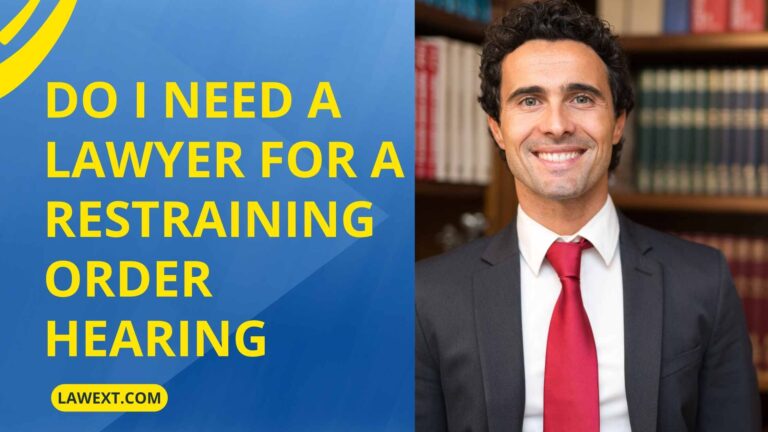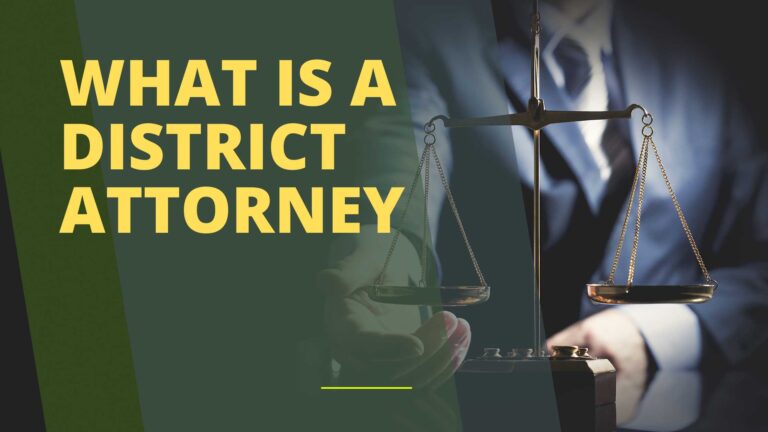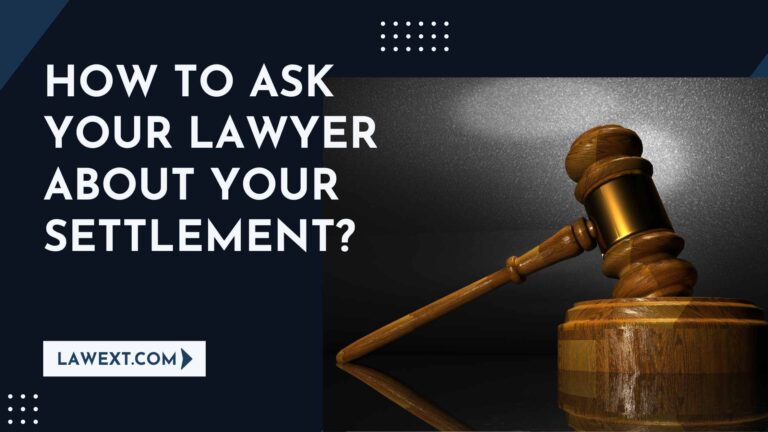Can a Lawyer Defend a Family Member?

A lawyer can defend a family member as long as they follow legal and ethical guidelines. If you find yourself in a legal predicament, you may wonder if a lawyer can defend a family member.
The answer is yes, as long as the lawyer abides by the rules and regulations set forth by the legal profession. It is not uncommon for lawyers to represent their family members in court, although they must ensure that they maintain impartiality and advocate for their clients to the best of their ability.
We will delve deeper into the topic to provide a comprehensive understanding of the laws and ethical considerations surrounding a lawyer defending a family member. So, let’s explore this intriguing aspect of the legal field together.

Credit: ildefense.com
Ethical Considerations
When it comes to defending a family member, lawyers are often faced with ethical dilemmas. These dilemmas revolve around conflicts of interest and the need for impartiality. Understanding these ethical considerations is crucial for lawyers to navigate their professional responsibilities while also providing the best possible defense.
Conflicts Of Interest
Lawyers have a duty to represent their clients diligently and in their best interest. However, when a lawyer defends a family member, conflicts of interest may arise. A conflict of interest occurs when the lawyer’s personal relationship with the client interferes with their ability to advocate objectively.
It is important for lawyers to assess whether they can maintain their professional objectivity while representing a family member. They must consider if any personal biases or emotional attachments may cloud their judgment or influence their legal strategy. If conflicts of interest exist, lawyers should consider recusing themselves from the case or seeking independent legal counsel for their family member.
Impartiality
Impartiality is a cornerstone of the legal profession. Lawyers are expected to provide unbiased and fair representation to their clients, regardless of personal relationships. When defending a family member, lawyers must ensure that they can put aside any preconceived notions and treat the case as they would any other.
Impartiality requires lawyers to approach the case objectively, considering all relevant facts and arguments. They should avoid favoritism or providing preferential treatment to their family member. By maintaining impartiality, lawyers can uphold the integrity of the legal system and ensure a fair and just defense for their client.

Credit: www.alpsinsurance.com
Professional Responsibilities
Professional responsibilities of a lawyer extend to the delicate situation of defending a family member. This ethical dilemma places the lawyer in a position to navigate the duties of competence and loyalty while upholding the principles of legal practice.
Duty Of Competence
A lawyer has the duty to provide competent representation to clients, including family members, by demonstrating the legal knowledge, skill, thoroughness, and preparation necessary for the representation.
Duty Of Loyalty
The duty of loyalty requires the lawyer to prioritize the client’s interests over their own, including in cases involving family members. This encompasses avoiding conflicts of interest and maintaining confidentiality.
Legal Restrictions
When it comes to the legal profession, defending a family member in court raises a host of ethical and legal considerations. While deep-seated emotions and a desire to protect loved ones may tempt lawyers to step in, various restrictions exist that dictate whether an attorney can take on the defense of a family member. In this article, we will delve into the prohibitions in certain jurisdictions, as well as the exceptions and limitations that allow lawyers to represent their own kin.
Prohibition In Some Jurisdictions
It is important to note that there are jurisdictions where lawyers are prohibited from representing immediate family members in legal proceedings. These rules are in place to maintain impartiality and ensure that the attorney-client relationship remains objective. By removing familial connections, legal professionals can provide unbiased advice and advocate effectively on behalf of their clients. This prohibition intends to protect the integrity of the justice system and prevent any conflicts of interest from arising.
Exceptions And Limitations
Although restrictions exist, there are exceptions and limitations that enable attorneys to defend family members under certain circumstances. For instance, in some jurisdictions, lawyers may be allowed to represent immediate family members solely for advice and counseling without appearing in court as their legal representative. This enables attorneys to provide crucial guidance while avoiding conflicts of interest during trial proceedings.
In addition, there may be exceptions in cases where no other attorney is available or capable of handling the defense. When faced with limited options, attorneys may be permitted to step forward to ensure that their family member receives competent legal representation. However, these exceptions are often subject to rigorous scrutiny to ensure fairness and avoid any compromising situations.
Moreover, it’s worth mentioning that lawyers representing family members in legal matters must adhere to the same professional standards and ethical obligations as they would with any other client. They must prioritize the law, uphold confidentiality, and maintain the highest level of professionalism throughout the process, upholding the principles of justice that form the foundation of their profession.
Ultimately, the permissibility of a lawyer defending a family member varies depending on the jurisdiction and the specific circumstances surrounding the case. Understanding the legal restrictions, prohibitions, exceptions, and limitations that exist in each jurisdiction is essential for lawyers to make informed decisions when faced with the possibility of defending their own family members.
Personal Consequences
A lawyer may be able to defend a family member in a legal case, but it can have personal consequences. It is important for the lawyer to maintain objectivity and ensure fair representation for their family member.
Strained Relationships
Maintaining a healthy relationship between a lawyer and their family member can be challenging when the lawyer is defending them in a legal matter. The personal consequence of defending a family member often leads to strained relationships, as the legal process can create tension and conflict.
The lawyer’s role includes scrutinizing evidence, challenging witnesses, and presenting arguments in court. These actions can cause family dynamics to become tense and even hostile, as family members may feel attacked or betrayed. The lawyer may find it difficult to navigate between their professional obligations and their personal connection with the family member.
Emotional And Psychological Impact
Defending a family member can have a significant emotional and psychological impact on the lawyer. Legal proceedings can be emotionally draining, as they involve dealing with sensitive and often distressing information. The lawyer may also face personal dilemmas and conflicting emotions, such as the balance between their loyalty to the family member and their duty as an attorney.
The weight of the case may cause the lawyer to experience stress, anxiety, and sleepless nights. They may feel a heavy burden of responsibility to secure a favorable outcome for their family member. Additionally, the lawyer may wrestle with ethical considerations, as they try to navigate the fine line between advocating for their loved one and upholding the principles of justice.
Alternatives And Recommendations
When it comes to whether a lawyer can defend a family member, there are alternative options and recommended steps for navigating this situation. Here are some important considerations that can offer guidance in such a delicate matter.
Seeking Independent Counsel
It is advisable for a lawyer to recommend that their family member seek independent legal counsel if they themselves cannot represent them. Independent legal counsel ensures that the family member receives unbiased and comprehensive legal advice. This impartial approach can help in maintaining transparency and fairness throughout the legal process.
Recusing Oneself
Another option is for the lawyer to recuse themselves from the case to avoid any conflict of interest. By stepping aside from representing the family member, the lawyer can uphold their ethical obligations and prevent any potential ethical dilemmas. This decision exemplifies professionalism and commitment to upholding legal standards and integrity.

Credit: quicklawinfo.com
Conclusion
In the end, the decision to defend a family member as a lawyer is a personal and complex one. While it can be emotionally challenging, it is possible for a lawyer to provide legal representation for a family member. However, ethical and professional boundaries must be upheld to ensure fair and unbiased legal representation.
It is crucial to carefully consider the potential implications and seek advice from trusted colleagues and legal professionals.
Amelia Justiceberg, a distinguished legal luminary, thrives on the intersection of empathy and legal acumen. As a prominent family law attorney, she orchestrates compassionate resolutions amidst complex dynamics. Justiceberg's courtroom finesse and dedication to fairness define her practice. Beyond litigation, she ardently advocates for social justice, solidifying her reputation as an influential force in the legal landscape.






